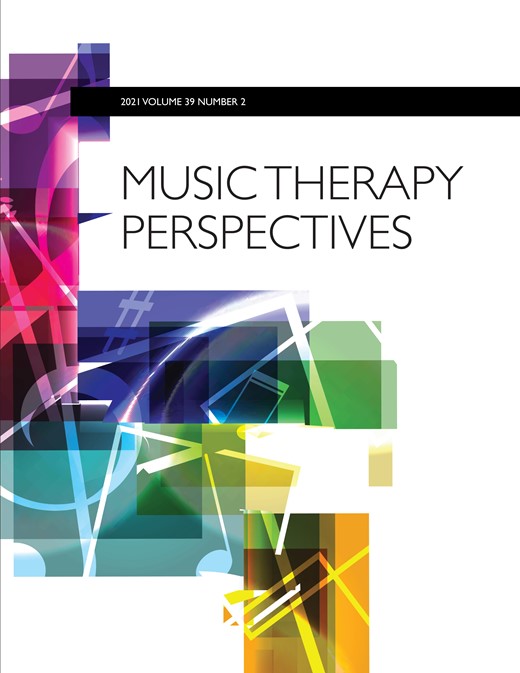-
Views
-
Cite
Cite
Kory Antonacci, Nicole Steele, Jacob Wheatley, Donna M Weyant, Beverly Brozanski, Brittany Stone, Teresa Mingrone, Effects of Guitar Accompaniment Patterns on Hospitalized Infants: A Randomized Controlled Trial, Music Therapy Perspectives, Volume 39, Issue 2, Fall 2021, Pages 172–183, https://doi.org/10.1093/mtp/miab013
Close - Share Icon Share
Abstract
A neonatal intensive care unit (NICU) can be an extremely stressful environment for infants receiving complex medical care at a pediatric facility. Music therapy can help address the stressful environment by increasing comfort and relaxation as well as decreasing a patient’s physiological response of heart rate and respiratory rate. A randomized controlled trial was completed, examining the effects of 2 guitar accompaniment patterns on infants (an arpeggiated pattern and a bass/chord pattern) in a NICU. There were 180 infants enrolled with mean chronological ages of 7.4 ± 6.1 weeks and postmenstrual ages (gestational age at birth + their chronological age) of 39.8 ± 7.9 weeks. All subject enrollees participated in a 12-minute initial music therapy session. Outcome measures included heart rate, respirations, and comfort responses. The results of the research study demonstrated that the arpeggiated guitar pattern had a lower mean heart rate and respiratory across all 3 data points (pre, during, and post intervention); however, the difference in means between the 2 accompaniment pattern groups was not statistically significant. Using the Neonatal Infant Pain Scale (NIPS) to measure comfort response, the results demonstrated no difference between the 2 group accompaniment patterns. Although the results show no significant differences among accompaniment pattern groups, the researchers describe the clinical significance that supports the use of both accompaniment patterns as suitable interventions for infants in the NICU receiving music therapy intervention.





